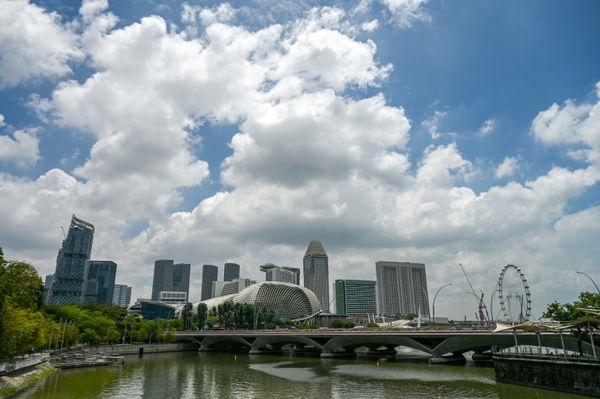
This week’s White House visit by Ukraine’s president, Volodymyr Zelenskiy, comes at a critical juncture in the devastating 19-month war that has followed Russia’s illegal, full-scale invasion. The recent, unsatisfactory Nato, Brics and G20 summits have heightened the perception that the international community may be nearing a fateful tipping point in the developing global contest between the western democracies and aggressive authoritarian powers, principally China and Russia.
When Zelenskiy sits down with President Joe Biden on Thursday, there will be no disguising that Ukrainian progress on the battlefield this summer has been disappointing. High expectations in western political and military circles about Kyiv’s counter-offensive now appear over-cooked. After a late start, advances have been painfully slow and costly in terms of lives lost. Some territory has been regained, through the heroic efforts of Ukrainian ground troops, but there is no definitive breakthrough as yet. A winter stalemate looms.
For his part, Biden may warn Zelenskiy that while he remains committed to helping Kyiv free its territory from Russian occupation, his administration faces an uphill task in maintaining current, high levels of US military aid. Republicans in Congress critical of Biden’s policy, and eyeing next year’s elections, have seized on a CNN poll indicating that 55% of Americans oppose more funding for Ukraine on top of the $43bn in US security assistance already provided.
The same poll found that 51% of Americans believe the US has already done enough, while 48% say it should do more. On this, as on so many other issues, public opinion is split down the middle. But the trend is not in Ukraine’s favour. That was evident during the Republican presidential TV debate, when several candidates echoed Donald Trump in questioning continued US support. Biden is proposing a new $24bn package of military aid. This must be approved if Ukraine is to maintain forward momentum.
Kyiv has also suffered recent disappointments on the political and diplomatic fronts. Zelenskiy’s passionate plea to be given a firm timetable for Nato membership was ill-advisedly rebuffed at the alliance’s July summit. Shamefully, this month’s G20 summit, under pressure from Moscow, failed to condemn Russian aggression or directly mention the war at all. Although Rishi Sunak and others pretended otherwise, this was a startling defeat for Ukraine and its partners.
Ukrainian worries about potential backsliding extend to Britain and Europe, where the flow of advanced weapons to Kyiv seems to be slowing. It may be unfair to imply, as Boris Johnson did last week, that Sunak’s government has taken its eye off the Ukraine ball, but the appointment of the ill-qualified Grant Shapps to replace Ben Wallace as defence secretary does not inspire confidence. In France, meanwhile, former president Nicolas Sarkozy caused dismay – but may have spoken for many – when he insisted Europe had to work with, not against, Russia and urged Ukraine to surrender territory and become neutral.
On top of all this, Ukrainians and their western supporters have had to endure the sight of the insufferable Vladimir Putin, an indicted war criminal, courting China and the “global south” by video at the Brics summit and hosting a fellow mass murderer, North Korea’s Kim Jong-un, for talks on illegal arms deals.
Those in the west who believed at the outset that this war could somehow be contained or ringfenced, and sought to keep their distance and limit involvement, must surely see now how wrong they were. Like a cancer, the conflict ineluctably metastasises around the globe. How much more avoidable suffering and divisiveness must there be, how much more institutional damage and international destabilisation, before the world finally realises that this is not just about Ukraine – it’s about everyone?
Last week, Antony Blinken, US secretary of state, said a “hinge moment in history” has been reached. “What we are experiencing is more than a test of the post-cold war order. It’s the end of it,” he said. “Decades of relative geopolitical stability have given way to an intensifying competition with authoritarian powers, revisionist powers.” Core principles enshrined in the UN charter – sovereignty, territorial integrity, independence – were threatened. Ukraine was this global struggle’s frontline.
Blinken’s words well express the magnitude of the challenge. So what is to be done? Should Zelenskiy heed the siren voices calling for talks at any price, even though Moscow arrogantly ignores Kyiv’s peace plan? Must Ukraine reconcile itself to the permanent loss to aggression of a fifth of its land – a dreadful precedent for Taiwan and others? Is it inevitable, as Putin plainly believes, that western unity will fray and determination to keep fighting will weaken? No, no and no again.
Now is not the moment to wobble, to give in to this thug, to abandon international law, justice and basic human rights. Ukraine needs, and must have, more weapons such as the UK-supplied Storm Shadow missiles that reportedly did so much damage to Russia’s Black Sea fleet last week. It needs more ammunition and drones. It badly needs American F-16s and longer-range missiles. It needs and deserves unflinching political, humanitarian and moral support. Above all, it needs solidarity.
This war, sadly, still has a long way to run – although Putin could end it overnight by withdrawing his troops. But if the western powers lose heart and begin to abandon Ukraine, then Blinken’s hinge of history will slam shut, closing the door on decades of relative security and stability, economic progress and international cooperation. As we have said before, Ukraine’s fight is our fight. Efforts must be redoubled to ensure it prevails.







